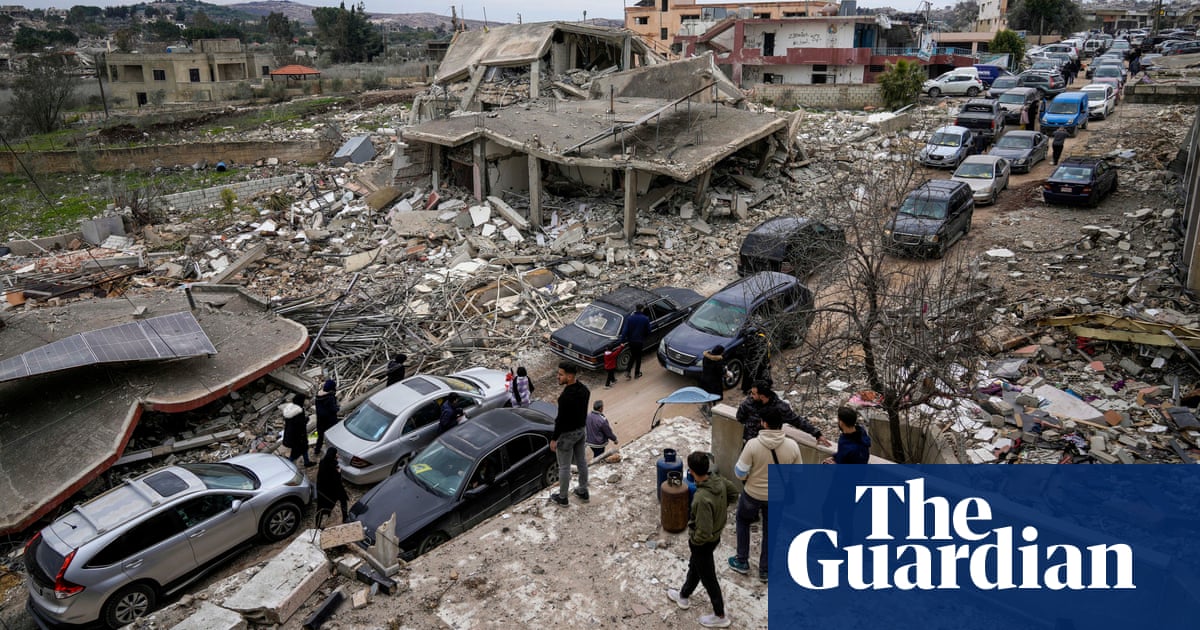 |
|
The recent escalation of violence in Lebanon and Gaza has resulted in a tragic loss of life, with Israeli forces opening fire on civilians attempting to return to their homes, despite declared ceasefires. At least 15 people were killed in Lebanon and one in Gaza, highlighting the volatile nature of the situation and the disregard for civilian safety. The actions of the Israeli military directly contradict the terms of the agreements, creating a complex and increasingly dangerous situation for the affected populations. The events underscore the urgent need for a stable and lasting peace in the region, demanding immediate international intervention to prevent further bloodshed and ensure humanitarian assistance reaches those in need.
The Israeli government's justification for its actions rests on accusations against Hamas and the Lebanese army of violating ceasefire agreements. Specifically, the delay in releasing Israeli hostage Arbel Yehoud is cited as a reason for preventing the return of civilians in Gaza. This raises concerns about the disproportionate response and the use of a hostage situation as a pretext to impede the return of displaced populations. While ensuring the safety of hostages is paramount, the actions taken by Israel have resulted in a humanitarian crisis, leaving thousands stranded and without access to basic necessities. The international community must critically assess Israel's claims and address the underlying concerns of accountability and proportionate response in times of conflict.
Simultaneously, Israel's order to the United Nations Relief and Works Agency for Palestine Refugees in the Near East (UNRWA) to vacate its offices in East Jerusalem and face a complete operational ban in Israel further exacerbates the humanitarian crisis. UNRWA plays a vital role in providing aid and essential services to Palestinian refugees in Gaza, and the threat of its closure would severely impede the distribution of aid at a critical time. This action by Israel directly undermines the ceasefire agreements which include provisions for increased humanitarian assistance to Gaza. Such a move jeopardizes the wellbeing of millions of Palestinians, pushing them further into hardship and potentially fueling further unrest. The international community must condemn this action and urge Israel to reconsider its decision, acknowledging the crucial role UNRWA plays in maintaining stability and delivering crucial aid.
The situation in Lebanon mirrors the crisis in Gaza. Residents attempting to return to their border villages, despite warnings from the Israeli military, were met with live fire. The Lebanese Ministry of Health reported over 80 injuries in addition to the fatalities. Videos depict tense standoffs between Israeli forces and Lebanese civilians, some of whom were waving Hezbollah flags. This highlights the deep-seated animosity and mistrust between the two sides, hindering any prospects for lasting peace. The Lebanese government's assertion that its sovereignty and territorial integrity are non-negotiable underlines the gravity of the situation and the potential for further escalation.
The destruction inflicted on Lebanese villages along the border is extensive, with satellite imagery revealing widespread devastation. Israel claims the attacks were targeting Hezbollah infrastructure, while critics accuse Israel of creating an uninhabitable buffer zone. Returning residents describe scenes of utter devastation, their homes reduced to rubble. This widespread destruction not only represents a humanitarian disaster but also raises significant questions about the proportionality of the Israeli military response and its potential to fuel further conflict by creating a climate of fear and resentment. The long-term consequences of such actions must be carefully considered by the international community.
The ongoing airstrikes in Lebanon, numbering over 350 since the ceasefire agreement, further complicate the situation. Hezbollah's warning that a failure of Israel to withdraw by January 26th could lead to the collapse of the ceasefire agreement adds another layer of tension to this already unstable environment. The interconnectedness of events in Gaza and Lebanon reveals the complex web of political and security interests at play. Effective solutions require a multifaceted approach that addresses not only the immediate humanitarian needs but also the underlying political and security grievances that fuel the conflict.
The potential shuttering of UNRWA's operations represents a critical turning point. The agency's essential role in providing schooling, healthcare, and other vital services to Palestinian refugees cannot be overstated. Its abrupt closure would have catastrophic consequences, leaving vulnerable populations without critical support. UNRWA's statement emphasizing the inviolability of its premises and the legal obligations of member states underscores the international legal framework at stake. The Israeli government’s decision to disregard these norms is a dangerous precedent that sets back the prospects for peace and security in the region, jeopardizing international law and the principles of humanitarian aid.
Source: Israeli troops kill 15 in Lebanon and one Palestinian as residents try to return home
